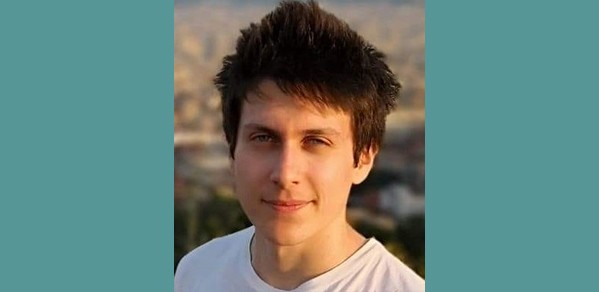
PhD student Stratis Markou has been awarded $40,000 in funding to build scalable and robust machine learning models to tackle challenges facing climate science and healthcare – fields that often involve safety-critical decision-making.
I will apply the resulting machine learning models on real-world tasks and integrate all contributions to an open-source library to make it easier to carry out further research in this area.
PhD student Stratis Markou
The Qualcomm Innovation Fellowship Europe programme rewards young researchers in the fields of artificial intelligence (AI) and cybersecurity, with individual funding, dedicated mentors from the Qualcomm Technologies team, as well as the opportunity to present their work in person to an audience of technical leaders at the company’s HQ in San Diego.
Stratis, who is supervised by Professor Carl E. Rasmussen in the Department’s Computational and Biological Learning Laboratory, and advised by Professor Richard E. Turner, was selected for his proposal titled Systematic Design of Neural Process Models for Probabilistic Meta-Learning.
Meta-learning is a part of machine learning concerned with “learning how to learn” and there are still significant limitations that affect its applicability in practice. Neural processes are a relatively new class of machine learning models which can be designed to operate under certain constraints.
Stratis’s project will explore complementary aspects of neural processes design. These design choices will aim to capture more intricate statistical dependencies in the data, and leverage useful prior information, either in the form of symmetries present in a system or other kinds of expert knowledge, while keeping computational requirements at a minimum at deployment.
“I will apply the resulting models on real-world tasks and integrate all contributions to an open-source library to make it easier to carry out further research in this area,” said Stratis. “Climate science and healthcare often involve safety-critical decision-making, so it is essential that our predictions are robust and reliable. To this end, it is crucial that our models faithfully represent the statistical dependencies present in the data. The data in these applications are often irregularly sampled, have missing entries, or may be stored on different devices due to privacy constraints. These devices themselves often have limited computational and power resources. While a great deal of effort has been put into addressing many of these challenges, there is still lots of progress to be made.”
Watch the moment that Stratis Markou was announced a winner of the Qualcomm Innovation Fellowship Europe.
Stratis added: “The Qualcomm Innovation Fellowship is a tremendous confidence boost for me and I am extremely grateful for it. I am also deeply thankful to my supervisor, Professor Carl Rasmussen and my advisor, Professor Richard Turner, whose advice and mentorship has helped in securing the fellowship, as well as my collaborators on previous work on neural processes, which has shaped this project.”
Jilei Hou, vice president and head of AI research, engineering, Qualcomm Technologies, Inc., said: “At QIF Europe, each year we are delighted by the insightful and forward-looking proposals we receive, and the 2022 cohort was no exception. The innovative researchers are set to impact important technology areas such as, interpretable AI, data privacy, fair and generalisable algorithms, and more. We are proud to support their novel research and look forward to seeing the winners thrive in the field of AI and cybersecurity in the coming years.”
Adapted from a Qualcomm press release.

